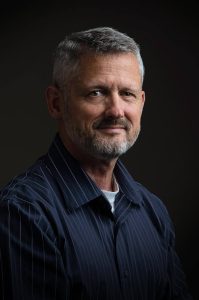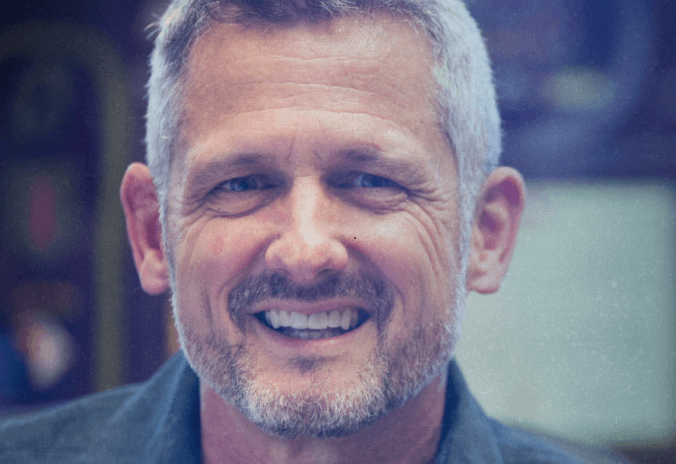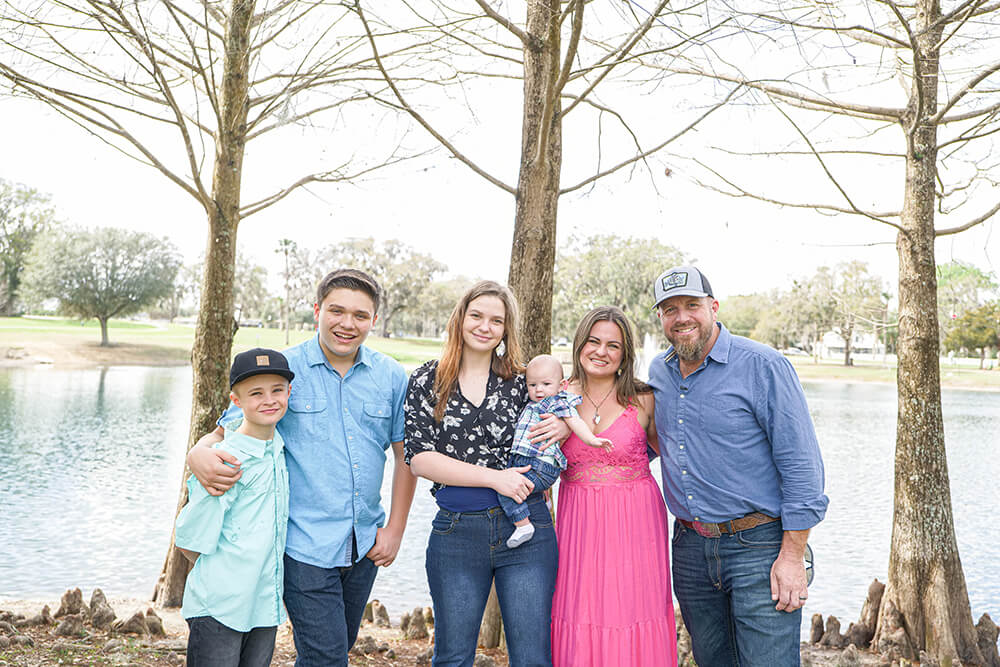Despite a 33-year career in the U.S. Army. Despite retiring with the rank of colonel in 2014 and having numerous accolades and accomplishments, when returning to civilian life, John C. Buckley II couldn’t find work. He recalls sending out 155 applications and not getting one legitimate bite. The experience led him to his current career, helping veterans and second-chance job seekers find meaningful work. Koch Industries hired him to create a military community recruiting and retention initiative, which helps veterans navigate civilian processes and overcome stigmas. Five years later, the success of that strategy led to the creation of a similar initiative for job seekers returning after involvement in the justice system.
On Tuesday, April 18, in advance of our Nationwide Day of Second Chances job fairs, Better Together had the honor of talking with John about second chance hiring, his journey and the advice he gives job seekers and employers.
BT: You created a successful initiative to help veterans re-enter the workforce. How did helping veterans find civilian work segue into the second-chance program?
JB: There are overwhelming similarities between military community members who are trying to leave military service and move into the private sector, and people, especially those who have been incarcerated, but people who are justice involved trying to return to the workforce. They’re very similar in the challenges, even if the methods of overcoming them are slightly different.

The fact that people may look at you differently, may assess you differently, may have different beliefs, in the sense of, should you be part of our workforce, I think those foundationally are the same. Secondarily, there are the challenges that come with it. When you look at the greater demographic of those who are justice involved, they may not have a college education, they may have a high school education. They may not have much work history, or they’ve got a tremendous gap in employment. And those are very similar to the military community.
The applicant tracking system that almost every company uses here in the United States is built for what I would refer to as more traditional professionals and in itself creates barriers to those who are not familiar with it. …I refer to them as landmines, just using my military analogies. But they exist throughout, and to folks that are not traditional professionals—people who are justice involved, people coming from the military, moms who’ve been out of the workforce—those processes and procedures just aren’t familiar to them and so they stumble every step of the way.
It’s more than just the stigma, it’s some of those unique challenges… It may be the access to a driver’s license; you don’t have a residence, at least, if you just reentered society; you may not have a stable housing situation, stable transportation situation, and so whether it’s that, or, like I said, the gaps of employment, which is more common with a lot of other nontraditional demographics, they create challenges and barriers.
BT: Are we talking about computer algorithms weeding people out?
JB: Whether it’s an automated system that rejects somebody or a recruiter or a hiring manager that looks at (a resume) and says, “Hey, you haven’t had a job since 2018. What happened?” There was a situation that just came up a couple of days ago, where somebody started college, but they got into trouble, were incarcerated, and then they completed school while they were incarcerated. So it was like, “Well, how come you started school here, but you got a degree here?” It was an innocent question. But then it causes somebody to reveal that they had to change because they made a mistake. So then you open the door to all sorts of possibilities, of, oh, wow, sorry, I don’t want anybody that’s had a problem in their life. And that’s just not what you want to do.
BT: What advice do you give job seekers for talking with employers to work through something like that?
JB: I have that conversation almost on a daily basis. …You don’t need to reveal anything that about your background during the interview process. You really don’t. You present the facts about your skills and your experiences relevant to the job in a resume. And then in the interview room, you answer those questions. You will have to be prepared to answer in a very honest way that you are justice involved in some capacity, because you may get an innocent question, like I described, why is there a gap in your employment or the example of the schools. So you have to be prepared to answer that question.
When you answer that question, there’s a balance between giving enough information and telling your life story. …If you don’t tell enough, then the hiring manager is going to think, well, this person wasn’t entirely truthful. So, it’s good to be prepared to answer that question in a clear and succinct way. And then ask if they want additional information so that you’re not perceived of hiding information.
… Now, when you get the job offer, like Koch Industries, most companies will then do a background check. If the process is appropriate, you may have a chance to comment on it, or provide your side of the story, if you will, or at least provide additional facts and information to it. What I coach folks to do is, regardless of whether or not this topic came up during the entire selection process, … you must tell your HR representative. Because if things come up (counseling appointments, meetings, trainings, for example), the HR folks need to know.
Whether or not you tell your supervisor or whether or not you reveal those facts to your peers is totally up to you. I would encourage it. But at the same time, you don’t have to. … That’s something that you have to decide and kind of read, read how that relationship is going in your workspace.
BT: What other advice do you offer to job seekers returning to work?
JB: Of course, I’m oriented a lot on how we do things at Koch Industries. So the first thing I tell them is that within Koch Industries, what’s really most important is your character, the values that you have. And so you want to be able to present those values. Integrity is a key one. So again, I go back to the situation where you don’t have to proactively provide the information, but because of integrity, you need to be able to answer any question that comes up in a more comprehensive way.
The second thing I tell them is trust the process. Now, again, I’m speaking about Koch, and how we do our background information and checks. …It’s a risk-based analysis that we do on the background information, but none of that comes up until after the job offer. So why I spend a lot of time talking about that is sometimes people will be rejected. And they automatically assume, “Oh my gosh, I was rejected because they know something about my background” and that’s not the case. There’s a myriad of reasons why somebody could be rejected on an application. One could be because the company changed its mind … or the customer base changed its requirements, so we no longer need this person or they decided to hire somebody from within or when you applied, they were already deep into the selection process. There are hundreds of reasons why you may not get selected. It is a competition. There’s in many cases 50 to 100 people who apply for the same job. So I try to tell them, you got to trust in the system.
Focus on what’s in front of you. You need to write a good resume, you need to be prepared for the interview, and then you need to be prepared to converse about whatever adverse information they may or may not find in your background. That’s what I try to coach them on, as opposed to focusing solely on their adverse information.
I’ll be honest with you; I must talk to anywhere between 20 and 25 folks who have adverse information. They come to me because of the source that we deal with, Honest Jobs or other companies where I know that the people that they’re referring to us have adverse information. I will tell you that 99.5% of those, I have no clue what type of information they have in that do they have a felony record? Is it a misdemeanor record? Is it a drug? I don’t know. And I don’t necessarily care. I focus on your character today, and I focus on the values that you bring, regardless of what happened 5, 10, 20 years ago.
BT: We have a lot of employers who tell us their second-chance hires are some of their best employees. But not everyone is initially open to making a second-chance hire. How do you talk with employers about the value of second chances?
JB: Koch is made up of multiple companies, so I’m constantly sharing stories that I do learn from folks who have worked with us and have gotten those promotions or have just exceeded their expectations. What I find in most cases, is that the folks for whom you’ve created a second chance become extremely loyal, and they don’t want to let you down because you’ve given them that second chance. They try really hard, and in many cases, well, that results in performing far better than their peers in the workplace. But there’s a back side to that. … Because they become so loyal, in some cases, they don’t want to even look at getting a promotion or getting an advancement, because that means that the person who gave them that second chance, they’re going to leave them.
BT: How do you overcome that?
JB: (Koch Industries encourages employees) to self-actualize. And the only way you’re going to do that is by challenging yourself, getting better, taking on more responsibility, asking for more authority, taking on new jobs, whatever the case may be, but continually to advance and grow. And so, there’s goodness in that. And there’s a challenge in that, too.
BT: Is that why the Koch Industries initiative has been successful?
JB: The outreach piece is another critical piece. That’s finding those partners, maybe even finding partners who provide some of the wraparound services, so that it doesn’t become as much of a burden on the company, so that’s something that the community or a nonprofit, or a church-based organization, or you name it some, some agency or entity is providing those wraparound services to increase their chances of acclimating rather quickly into the new environment.
And I would say the last thing, that right now I do, and I would certainly like to grow this capability, and that’s the coaching, teaching and mentoring, whether it’s the coaching, teaching, and mentoring of the job seekers through this process and beyond. But also coaching and teaching and mentoring recruiters, and hiring managers, and business leaders, and creating those partnerships, identifying the partners in my outreach that could be a partner with somebody and then making those introductions, and then fostering that relationship. So that it becomes a mutually beneficial relationship. It’s not just one sided. It’s got to be mutually beneficial.
BT: When you transitioned from the military to civilian life, you encountered a lot of challenges. Do you mind talking about that?
JB: Yeah, sure. … I understood the process in the sense of the hiring process. I understood it conceptually. But I didn’t really know the depth of this process. And I kid you not, I applied 155 times, and I didn’t get anything. I didn’t get a phone call. I think I may have been invited to one virtual interview that then got canceled on me. So in essence, I was 0 for 155. I don’t know how many baseball players are out there, but you can imagine if you were 0 for 155, you certainly wouldn’t be playing in the Major League.
I had to stop and really understand that maybe this is me. I literally stopped what I was doing, and I randomly found 10 different recruiters from 10 different companies. And honestly, I looked at them as my enemy. So in the military, of course, you have to study your enemy, and how they do things to then come up with a plan how to defeat them. And so I looked at that and said, “You’re my enemy, I’ve got to learn how you do your work and how you go through hundreds of resumes and select the right person for the interview and hire somebody,” and I did. I spent an inordinate amount of time learning about what they do.
I was first hired to develop the recruiting and retention program (at Koch Industries). And in that I started, pun intended, sleeping with the enemy, learning everything that they do even from a deeper side of things. I started to capture these lessons. I’ve written, it’s not a book, but it’s an online tool called the Transition Guide. And quite frankly, I use a lot of that in my conversations with folks for whom we’re trying to create second chances.
BT: Is there anything else that you want to add?
JB: If you’re interested in creating your own initiative, or helping create second chances, I’m more than happy to help. … I’d introduce you to some of the other agencies and organizations out there that can even do a better job than me, like the Dave’s Killer Bread Foundation and the Second Chance Business Coalition and so many other partners out there that can really enlighten you as to not only the benefits, but the how to get started kind of discussion. And then on the second hand, if you’ve got job seekers out there who are looking for opportunities, if we’ve got, if Koch or one of its companies is in your area, and you’ve got the skills and experiences, reach out, and we’ll see if we can align you with the right opportunity.
UPCOMING OPPORTUNITY: Better Together is hosting eight second-chance job fairs throughout Florida and in Washington, D.C., Kentucky and North Carolina on Thursday, April 20, 2023, as part of Nationwide Day of Second Chances. To find one near you, visit https://bettertogetherus.org/events/nwdsc.
###






